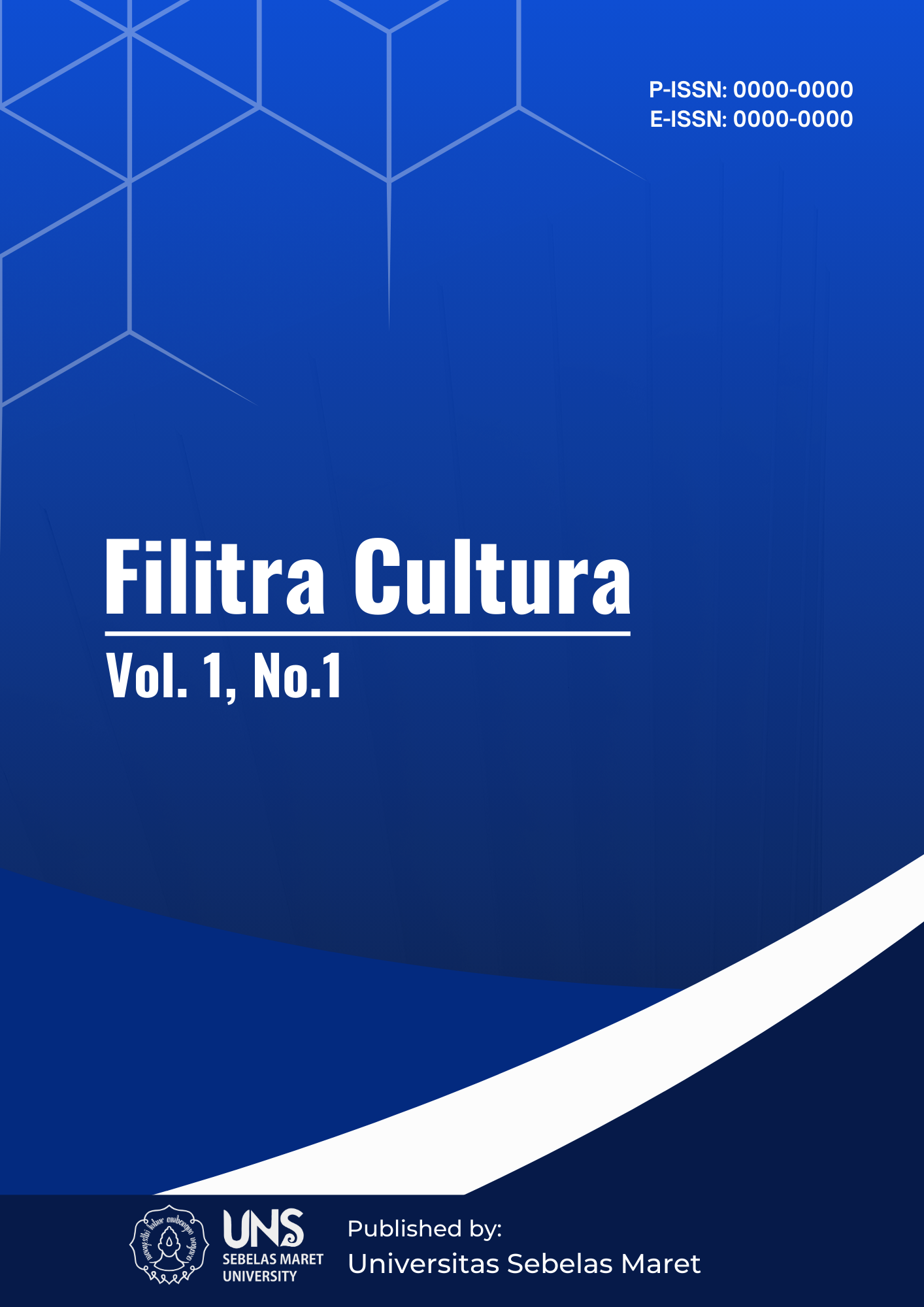Habitus in Rewang as a Manifestation of Community Solidarity
DOI:
https://doi.org/10.20961/Kata Kunci:
Rewang, gotong royong, habitus, local wisdomAbstrak
ABSTRACT: This study examines the practice of rewang(collective help) in Ngelo village, Indonesia with the lens of Pierre Bourdieu's theory of practice. Rewang is a form of gotongroyong (mutual assistance and community solidarity), a core value in Javanese culture, where villagers come together to assist one another during significant life events. This research is a qualitative study and uses case study approach. This research draws on interviews withinformants and direct field observation to explore how rewang shapes and reflects the habitusof individuals within the community. The findings reveal that rewang serves as a site where habitus is formed, reinforced, and negotiated, contributing to the reproduction of social structures and cultural values. The practice fosters social cohesion by strengthening community bonds, reinforcing collective identity, and facilitating the transmission of cultural knowledge across generations. The gendered division of labor within rewang highlights retains social norms and expectations, while also reinforcing the valued contributions of both men and women in maintaining social harmony.
Referensi
Afifah, S. (2022). Tradisi Rewang Dalam Kajian Psikologi Sosial. Indonesian Journal of Behavioral Studies, 2(2), 97-106.
Bourdieu, P. (1989). Social Space and Symbolic Power. Sociological theory, 7(1), 14-25.
Bourdieu, P. (1990). In other words: Essays toward a reflexive sociology. Polity Press.
Budiono, L. E. (2017). Yang Terlupakan, Yang Berkarya: Tinjauan atas Peran Perempuan Jawa dalam Tradisi Rewang untuk Memahami Ulang Makna sebuah Karya. Indonesian Journal of Theology, 5(1), 68-98.
Huda, M. M., Supriatna, M., & Abidin, Z. (2023). Character in the Local Wisdom of Rewang of the Jotosanur Village Community as a Strategy to Strengthen the Profile of Pancasila Students in Elementary Schools. Jurnal Cakrawala Pendas, 9(1), 117-125.
Koentjaraningrat. (1985). Pengantar Antropologi. Aksara Baru.
Lubis, A. Y. (2014). Postmodernisme: Teori dan Metode. Rajawali Pers.
Ramadhani, D. S., & Erawati, Y. (2024). Nilai-Nilai yang Terkandung dalam Tradisi Rewang (Kojo Samo) pada Masyarakat Desa Delik Kecamatan Pelalawan Kabupaten Pelalawan Provinsi Riau. Imajinasi: Jurnal Ilmu Pengetahuan, Seni, dan Teknologi, 1(3), 62-70.
Sagjoyo, P. (1999). Sosiologi Pedesaan. Gadjah Mada University Press.
Sefriyanto, D., Bahzar, M., & Marwiah, M. (2022). Anthropological Sociological Review Of Javanese Rewang Culture In Sidodadi Village, Samarinda Ulu District, Samarinda City. Unmul Civic Education Journal, 5(1), 69-75.
Silva, E. B. (2016). Habitus: beyond Sociology. The Sociological Review, 64(1), 73-92.https://doi.org/10.1111/1467-954X.12345
Sugiyono. (2020). Metode Penelitian Kualitatif. CV. Alfabeta.
Supriatna, M. (2020). Pendidikan Berbasis Etnik. Akademi Pustaka.
Utami, S., Syukurman, M., & Fatimah, A. S. (2023). Peranan Karang Taruna dalam Pelestarian Budaya Sinoman. Jendela PLS: Jurnal Cendekiawan Ilmiah Pendidikan Luar Sekolah, 8(2), 224-230.
Unduhan
Diterbitkan
Terbitan
Bagian
Lisensi
Hak Cipta (c) 2025 Filitra Cultura

Artikel ini berlisensi Creative Commons Attribution-NonCommercial 4.0 International License.






